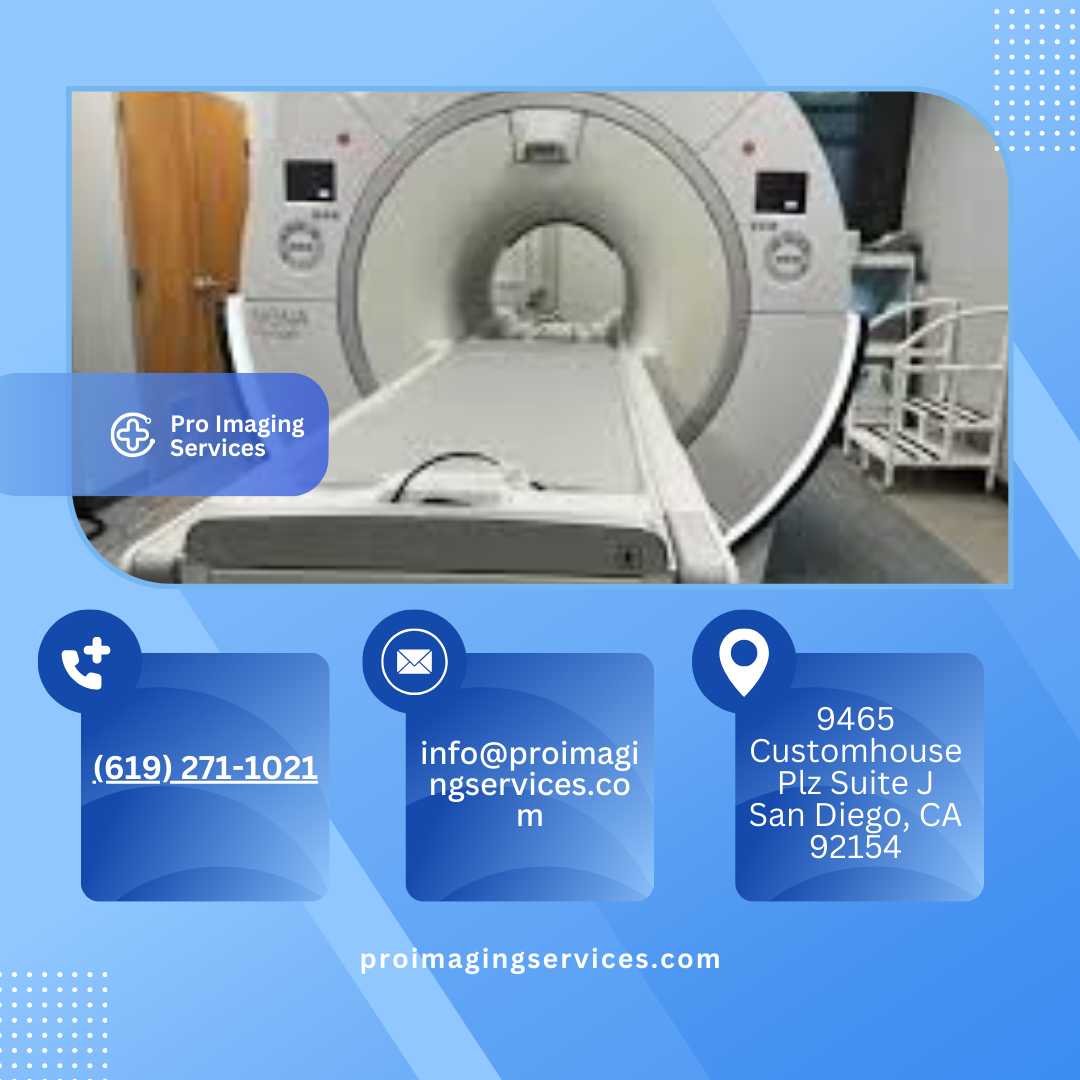Medical imaging plays a crucial role in modern healthcare, providing detailed insights into the human body and enabling accurate diagnoses. Professional imaging services are vital for hospitals, clinics, and diagnostic centers that rely on cutting-edge technology for medical assessments. These services include MRI, CT scans, X-rays, ultrasound, and fluoroscopy, each serving a unique purpose in detecting and monitoring diseases. In this article, we explore the essential services offered by professional imaging providers and discuss common MRI parts problems and their solutions.
Comprehensive Imaging Services
Professional imaging services encompass various diagnostic tools and techniques that help healthcare providers make informed decisions. Below are some of the primary imaging services provided by professional imaging companies:
1. Magnetic Resonance Imaging (MRI)
MRI is a non-invasive imaging technique that uses strong magnetic fields and radio waves to generate detailed images of internal structures. It is widely used for diagnosing neurological disorders, musculoskeletal injuries, and cardiovascular diseases. Professional imaging centers offer:
- High-resolution MRI scans for precise diagnosis
- Functional MRI (fMRI) to analyze brain activity
- Cardiac MRI for heart and vascular imaging
- Contrast-enhanced MRI to highlight specific tissues
2. Computed Tomography (CT) Scans
CT scans provide cross-sectional images of the body, making them essential for detecting fractures, tumors, and internal bleeding. Professional imaging services include:
- Multislice CT scans for rapid imaging
- Low-dose CT scans for reduced radiation exposure
- Cardiac CT scans to evaluate heart conditions
- 3D CT reconstructions for enhanced visualization
3. X-ray Imaging
X-rays are the most common diagnostic imaging technique, used to detect bone fractures, infections, and lung conditions. Professional imaging services offer:
- Digital X-rays for clear, high-quality images
- Portable X-rays for bedside examinations
- Fluoroscopy for real-time imaging during procedures
- Contrast-enhanced X-rays to assess blood vessels and organs
4. Ultrasound Imaging
Ultrasound is a radiation-free imaging services method that uses sound waves to create images of soft tissues and organs. It is frequently used in obstetrics, cardiology, and internal medicine. Services include:
- 3D and 4D ultrasound for detailed fetal imaging
- Doppler ultrasound to assess blood flow
- Musculoskeletal ultrasound for joint and tissue evaluation
- Echocardiography to examine heart function
5. Nuclear Medicine Imaging
Nuclear imaging involves the use of small amounts of radioactive materials to assess organ function. It is commonly used in cancer diagnosis and treatment monitoring. Services include:
- PET scans (Positron Emission Tomography) for metabolic imaging
- SPECT scans (Single Photon Emission Computed Tomography) for brain and heart assessments
- Thyroid scans to evaluate gland function
Common MRI Parts Problems and Their Solutions
MRI machines are complex devices with multiple components working together to produce detailed images. However, like any sophisticated technology, they are prone to issues that can impact performance. Below are some common MRI machine problems and their solutions.
1. Gradient Coil Malfunction
Problem: The gradient coil is responsible for spatial encoding in MRI images. When it malfunctions, the images may become distorted or unclear. Solution: Regular maintenance and cooling system checks help prevent overheating and coil failures. Replacing worn-out coils ensures optimal performance.
2. Radiofrequency (RF) Coil Issues
Problem: RF coils transmit and receive signals that create MRI images. If they fail, image quality can deteriorate significantly. Solution: Inspecting and testing RF coils periodically can help detect early signs of damage. Replacing faulty coils prevents imaging disruptions.
3. Magnet Cooling System Failure
Problem: MRI magnets require liquid helium for cooling. If the cooling system fails, magnet quenching may occur, leading to machine shutdown. Solution: Monitoring helium levels and ensuring proper cryogen refill schedules can prevent magnet quenching and maintain machine efficiency.
4. Power Supply Disruptions
Problem: MRI machines require stable power sources. Voltage fluctuations or sudden power losses can cause system failures. Solution: Installing backup power supplies and surge protectors can safeguard MRI systems from electrical disruptions.
5. Software and Firmware Issues
Problem: Outdated software can lead to system errors, slow processing, and compatibility issues. Solution: Regular software updates and firmware upgrades ensure the MRI system runs smoothly and integrates with the latest technologies.
6. Patient Table Malfunctions
Problem: The patient table must move smoothly for accurate positioning. Malfunctions can delay procedures and affect imaging precision. Solution: Routine inspections and lubrication of moving parts can prevent breakdowns and enhance patient comfort.
7. Image Artifacts and Noise
Problem: Image artifacts can result from improper calibration, electromagnetic interference, or hardware issues. Solution: Ensuring proper shielding, routine calibration, and periodic system checks can reduce noise and artifacts.
The Importance of Professional Imaging Maintenance
Maintaining imaging equipment is essential for delivering high-quality medical diagnostics. Regular inspections and preventive maintenance can:
- Reduce downtime by identifying potential issues early
- Enhance patient safety by ensuring equipment functions correctly
- Improve diagnostic accuracy with clear, high-resolution images
- Extend equipment lifespan through proper care and timely repairs
Conclusion
Professional imaging services play a critical role in medical diagnostics by offering advanced imaging technologies such as MRI, CT scans, X-rays, and ultrasound. These services ensure early detection and accurate diagnosis of medical conditions, contributing to better patient care. Additionally, maintaining MRI machines is essential to prevent common issues such as gradient coil failures, RF coil malfunctions, and power disruptions. By implementing routine maintenance and timely repairs, healthcare facilities can ensure the longevity and efficiency of their imaging equipment.
For expert imaging solutions and professional equipment maintenance, contact Pro Imaging Services today. Their team of specialists is dedicated to providing high-quality imaging services and reliable support for medical professionals.









